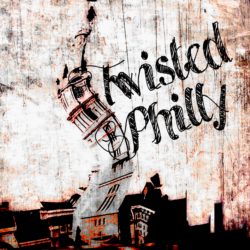Episode 86 – Originally released November 2019
Content warning: this episode contains discussions about serial murder, family annihilators, and death of children. Listener discretion is advised.
Can we apply today’s true crime labels to centuries old murders? Can a woman be considered a family annihilator? Does murdering your family make you a serial killer? How could what we know today about mental health disorders change the outcomes of jury verdicts and sentencing 100 years ago or more?
In 1889 the city of Philadelphia hanged its first woman. Sarah Jane Whiteling was found guilty of murder; she killed her husband and two young children. People struggled to find a motive but there were none to be found other than greed. Multiple medical examinations resulted in the same diagnosis: Sarah Whiteling was of sound mind when she made the decision to poison her family and calculating enough to spread out their deaths hoping to hide her crimes.
Was Sara a monster? Was she suffering a mental health disorder and therefore not accountable for her actions? Did she just tire of her life in Victorian Philadelphia and long for something easier, something richer? Would this story be any different today, 130 years later?
Research for this episode includes
- Death Penalty Information Center
- The Cambridge Journals of Medical History: Diagnosing Homicidal Mania; Forensic Psychiatry and the Purposeless Murder
- The Old Bailey Papers (oldbaileyonline.org)
- Serial Killers and Sadistic Murderers: Up Close and Personal by Jack Levin
- Philadelphia Inquirer 1888/89
- Philadelphia Times 1888
- Lancaster Semi Weekly New Era 1889
- Pittsburgh Dispatch 1888/89
- Cincinnati Enquirer 1889
- New York Herald 1888
TwistedPhilly is researched, hosted, and produced by me, Deana Marie, and available biweekly wherever you listen to podcasts. Follow me on Tiktok and Instagram at twistedphilly to see many of the locations and histories I discuss in the show.
Podcast: Play in new window | Download
Subscribe: RSS

